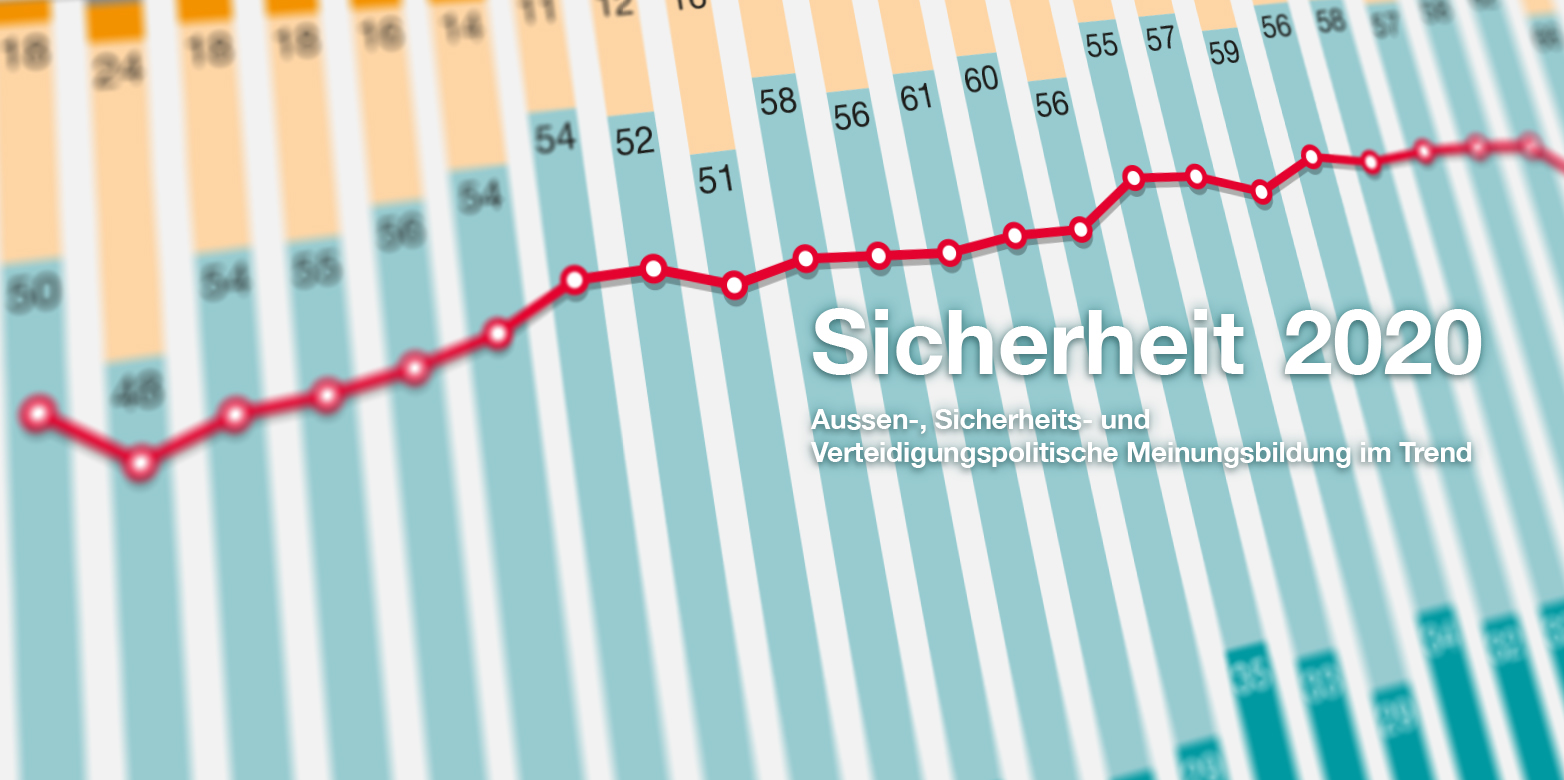Sicherheit 2020. Aussen-, Sicherheits- und Verteidigungspolitische Meinungsbildung im Trend
The Military Academy at ETH Zurich and the Center for Security Studies at ETH Zurich have published the annual survey "Sicherheit 2020". Since 1999, the study has evaluated long-term trends and tendencies in public opinion on foreign, security and defense policy issues in Switzerland.
The data of the study “Security 2020” were collected between 6 and 24 January 2020. Thus, possible effects on the current data owing to the outbreak of the COVID-19 pandemic in Switzerland and Europe as well as the public and media discussion of the crypto affair can be ruled out. These events have no influence on this survey.
Sense of Security and Perception of Switzerland and the World: The Swiss generally feel very secure in January 2020. The fear of crime remains as low as in the previous year. Four out of five Swiss women feel safe in public places. Respondents continue to be optimistic about the future of Switzerland. At present, a majority of Swiss citizens are pessimistic about the future development of the global political situation.
Trust in Authorities and Institutions: The police continues to enjoy the highest level of trust in 2020. The courts occupy second place, followed by the Federal Council and the Swiss economy. The Federal Parliament and the Armed Forces achieve average values on the trust index. As in the previous year, the media and political parties occupy the last places. Compared with the previous year, trust in the media, in political parties and in the police has fallen significantly in statistical terms. As a result of this loss of trust, overall trust in 2020 has also fallen significantly.
Neutrality: The principle of Swiss neutrality is supported almost unanimously by the Swiss electorate. Even if Switzerland’s neutrality no longer brought any advantages, the Swiss population would want to adhere to it. Support for this view is the same as last year and shows that the Swiss still attach great importance to neutrality.
Autonomy and Willingness to Open Up: The low willingness of Swiss citizens to open up continues in 2020. Support for economic and political autonomy remains high. While soft forms of cooperation without institutional ties are supported by a majority, forms of cooperation that would entail institutional integration in international organizations are clearly rejected. Establishing closer ties with or joining institutions such as the EU or NATO are hence only popular with a small minority. Switzerland’s good offices are supported by a large majority.
Compatibility of Voluntary Work / Militia Service / Militia Career with Professional Life or Education: The compatibility of voluntary work or general militia service with professional and private life is regarded as positive and feasible. This applies both to services within the framework of regular military service as well as to commitments to a militia cadre. At the same time, however, it is emphasized that militia cadre training is only possible if the economy and the military work together in a coordinated manner. Furthermore, the Swiss still regard the social value of “carrying on” in the Swiss Armed Forces as relatively high, even though a career in the militia is only held in high esteem by one third of Swiss nationals.
Swiss Citizens’ Level of Knowledge about Defense Policy: 47% of Swiss citizens have “heard, seen or read” something about the Armed Forces Development (AFD). 45% can spontaneously and without assistance cite Federal Councilor Viola Amherd as Minister of Defense and 30% know that the current defense budget is CHF 5 billion.
Attitudes towards the Swiss Armed Forces: A clear majority of the Swiss population supports the necessity of the Swiss Armed Forces in 2020. The population is satisfied with the performance of the armed forces. Although approval of the militia system as a form of defense and recruitment has fallen significantly, it is still supported by a majority.
Main Reasons For and Against the Necessity of the Swiss Armed Forces: The most common reasons cited for the necessity of the Swiss Armed Forces are “security of the country against the external threats” and “security within the country”. Those who do not consider the military to be necessary, on the other hand, most often emphasize their “doubts about the effectiveness” of the armed forces.
